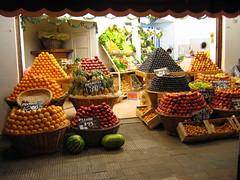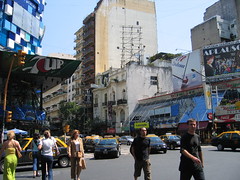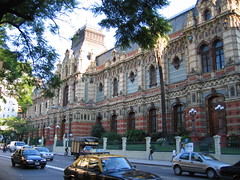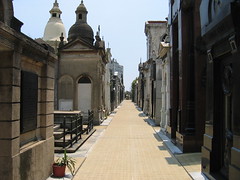Storefront Display, Constitucion
Buenos Aires, Argentina 12.30.04
10:00pm. It could be 4:30am. Heat is heat. But if you can say summer is hot then a toucan is a bird. New York is frugal with its seasonal changes. They occur in blurted-out phrases and just as easily renounce their position. If spring becomes summer on 18 May, then by 24 May it has taken back some early morning hours. Mid-afternoon rolls around and summer is back to being an expectation, not the conspirator you want it to be.
Off the plane for 12 hours, it has yet to conspire with you. Only a man who comes from winter can see these cheap splaths of orchard fruits as an “offering.” Stare at them all you want; when winter returns you’ll tell yourself, “A man cannot stack plums in pyramids and coliseums. There just aren’t enough fucking plums.” The rationale of an imagination where summer has not seeped quietly through the soil like a seedling. When summer happens in a single day, from winter, all the world’s fruit is pornography. Ripened curves are everywhere, and everywhere their scent is spilling into the street, stretched out crepe-thin by passing cabs. Just as sex abandons you in lust and haunts you in solitude, these oranges and peaches are not of a fickle season but a season cock-sure and driven. Like the only winters you’ve ever known. No matter how many excuses past summers have made for winter, Buenos Aires offers no sympathy. You have only the sweat that clings to you.




